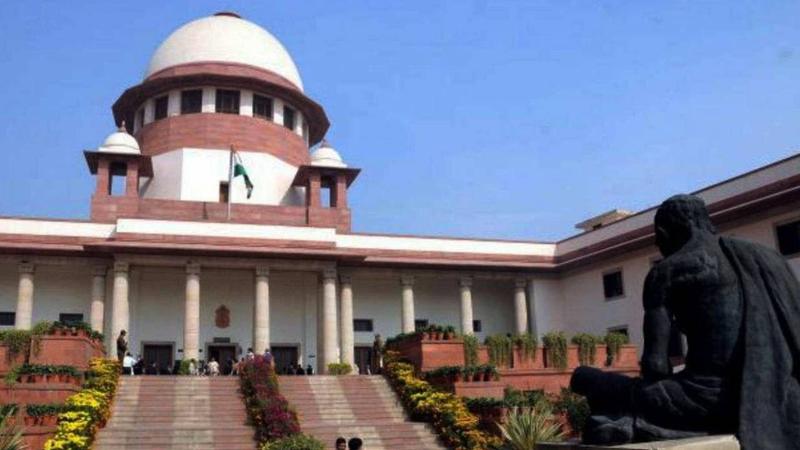Published 23:30 IST, January 6th 2025
Avoid Onerous Conditions in Granting Remission to Life Convicts: SC
SC on Monday stressed that "onerous conditions" should not be imposed on life convicts' premature release under remission policy.

New Delhi: The Supreme Court on Monday highlighted that "onerous conditions" should not be imposed on life convicts when granting premature release under the remission policy. The bench, comprising Justices Abhay S Oka and Ujjal Bhuyan, was hearing a case regarding the remission of life sentences.
The bench reserved its verdict on multiple issues concerning the remission of life convicts across the country's prisons. The court observed that if the conditions for remission are too burdensome, they could render the benefit of remission ineffective.
“The conditions for grant of remission should not be so onerous which are difficult to get implemented… such conditions would make the benefit of remission redundant,” the bench said during the proceedings.
The remission conditions, the bench said, should be so that its violations could be easily ascertained and the convicts should have the right of a hearing if the remission was cancelled owing to the breach of conditions.
The bench was mulling over the type of conditions to be imposed at the time of remission benefits to a life convict and situations when it should be cancelled.
Another issue before the court was whether the state governments were bound to consider the applications of eligible life convicts seeking permanent remissions in terms of their policies even if no such pleas were filed.
Whether recording reasons while rejecting such applications was required or not was the third question before the bench.
The bench reserved the order on the aspect of remission after hearing senior advocate and amicus curiae Liz Mathew on them.
The senior advocate emphasised on standardising the remission processes across states to uphold justice, ensure fairness, and promote rehabilitation in line with India's reformatory criminal justice philosophy.
Mathew said remission or the premature release was a discretionary power vested in the state governments under Section 432 of the CrPC, Articles 161 and 72 of the Constitution, and other relevant laws.
"Grant of remission is not a vested right of any individual, but being considered for it is, subject to the satisfaction of certain conditions," she said.
She submitted being awarded life imprisonment meant a sentence for the entire life of the prisoner unless the appropriate government chose to exercise its discretion to remit either the whole or a part of the sentence under Section 432 of CrPC/Section 473 of BNSS.
The decision to grant remission remained conditional and subject to the convict's rehabilitation progress and public safety considerations, she said.
The senior lawyer further said the conditions imposed during remission must be specific, reasonable, and aimed at reformation rather than being overly punitive.
The conditions should not be vague but specific, as violation of such conditions was likely to give rise to a cause for action, she added.
She therefore proposed states to consider factors such as the convict's conduct, health, family circumstances, and the nature of the crime and pointed out the lack of uniformity in remission policies among states was a point of concern, having raised by the National Human Rights Commission.
Mathew suggested timely identification of eligible convicts, assistance from the district legal services authorities in filing applications.
She suggested strict timelines for processing and deciding on remission pleas while calling for specific conditions as vague riders violated constitutional safeguards under Article 14 (equality) and Article 21 (life and liberty).
On the cancellation of remission, she said violations of conditions must be adjudicated through a trial under Section 227 of the IPC, ensuring compliance with natural justice principles.
The amicus curiae further said the state governments should pro-actively identify eligible convicts for remission, even if applications were not submitted.
The resulting situation would uphold fundamental rights and prevent arbitrary detention, transforming the process into a rights-based, inclusive system that reflected India's commitment to justice and human dignity, added Mathew.
The top court had issued a slew of directions aimed at standardising and improving the transparency of policies governing permanent remission to convicts in the country.
The bench was hearing a 2021 suo motu case: "Policy Strategy for Grant of Bail" and directed all states and union territories to inform convicts of any rejection of applications for permanent remission within one week.
(with agency inputs)
Get Current Updates on India News, Entertainment News along with Latest News and Top Headlines from India and around the world.
Updated 23:30 IST, January 6th 2025




